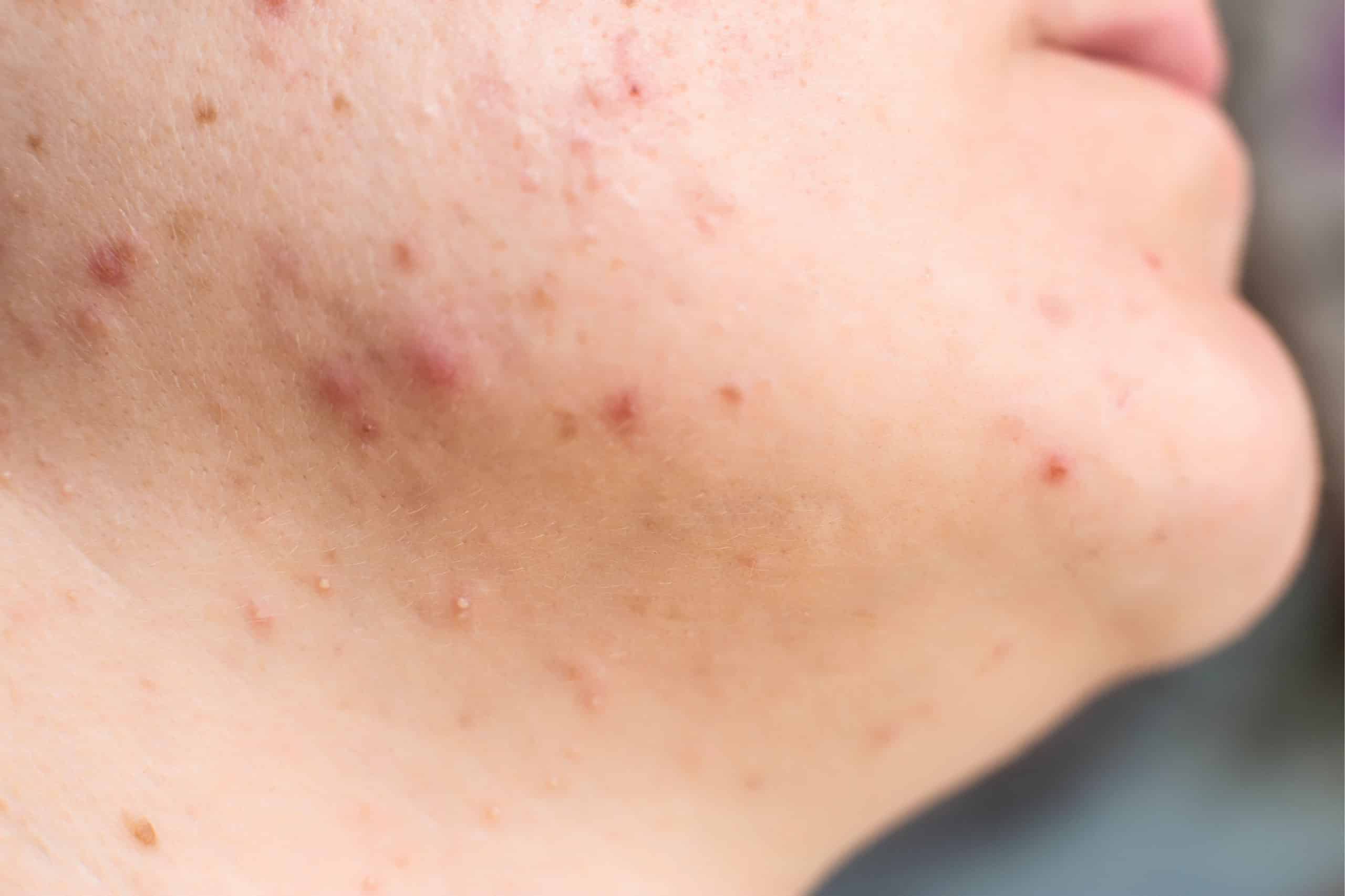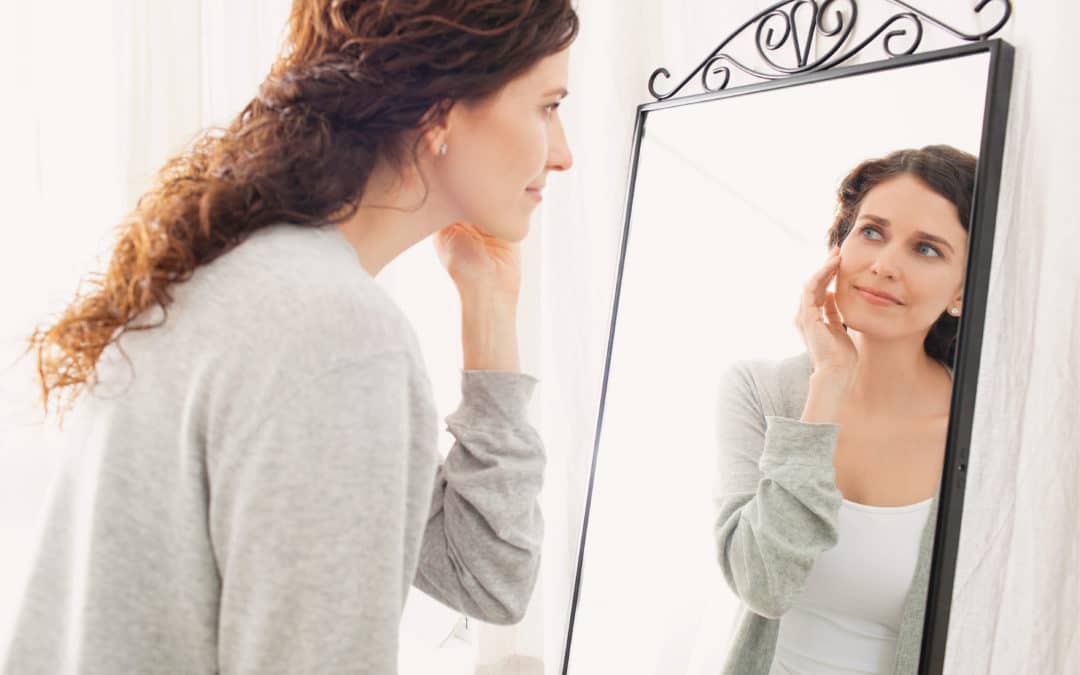Menopausal acne seems to be a problem faced by some but not all women going through menopause.
Why?
We are all unique and our ideal balance whether its hormones, exercise, sleep, or stamina all vary between us and from time to time. There is no denying that skin changes occur during the menopause as a result of hormonal changes: These include dry skin, sensitive skin, pimples, and wrinkles!
Clinically we diagnose menopause after 12 continuous months of absence of periods. However hormonal imbalances can span years before and years afterward. Therefore, a woman can experience menopausal symptoms in her forties right up into her seventies. There are various treatments available to address common menopausal symptoms. But menopausal acne is often neglected as there is a lack of research into it.
What causes menopausal acne?
One of the causes of a breakout is an increase in sebum production. The male sex hormones, androgens, are responsible for this. The sebum glands can also be ‘too sensitive’ to normal androgen levels.
So why at a time when hormones are declining, do women experience breakouts?
It is all to do with the balance of hormone levels. At the start of the perimenopausal period, you get an imbalance of male and female sex hormones. The female sex hormones, progesterone and oestrogen are lower in proportion to the androgens. The ‘excess’ androgens like testosterone stimulate sebum overproduction leading to breakouts.
After the menopause, there is a sharp drop in oestrogen secretion, but the androgen production decreases gradually. So, some women remain in the androgen ‘excess’ state stimulating further acne lesions. Other signs of relative androgen excess are unwanted hair growth and receding hairline.
If you have a strong family history of acne, then you are at a higher risk of developing menopausal acne. Your diet and stress level can also play a part in encouraging breakouts. This is through the action of the hormone insulin and cortisol which in turn affects the skin.
Where do you get menopausal acne?
The classic site of hormonal acne is around the jawline and chin area. Menopausal acne can also appear on the chest and back as well.

How can we treat acne?
The aims of treatment are the same no matter what type of acne it is:
- Encourage exfoliation of the dead skin layer.
- Removing the material clogging the pores.
- Reduce the level of sebum.
- Limit inflammation.
- Eliminate bacteria.
In my previous blog, I have discussed acne in more detail: Acne: The unexpected, uninvited, unwanted pain in the face!
Treatment options for menopausal acne
- Good skincare routine with twice-daily cleansing with a suitable cleanser.
- Appropriate serum to target inflammation, reduce bacteria, reduce sebum production and normalise skin cell turnover. You could also consider targeted medical skincare for menopausal skin to address lines and wrinkles, pigmentation and dry skin.
- Sun protection for general skin health as well as protection whilst using active skincare that may sensitise the skin to UV radiation.
- Oral medication to target acne.
- Hormone balancing
Lifestyle changes that need attention include having a balanced healthy diet, getting adequate sleep, stopping smoking, regular exercise, controlling obesity, and reducing stress. Avoid picking or squeezing spots and avoid unnecessary UV exposure on the skin. Avoid touching your face and keep smart phones screens clean. Change your pillowcase regularly. Choose non-comedogenic makeup, clean your brushes and remove makeup before bedtime.
Women have to cope with so many changes during menopause which are distressing enough without having skin problems usually associated with teenage skin!
If you would like to find out how to manage menopausal acne, please get in contact for a bespoke consultation.
📱07825 999 144 or
☎️ 01277 549 006
💌 drtash@skinenhanceclinic.com
Website: Book an appointment
Please be aware that other medical conditions can also cause androgen excess so you must consult your doctor.


Recent Comments